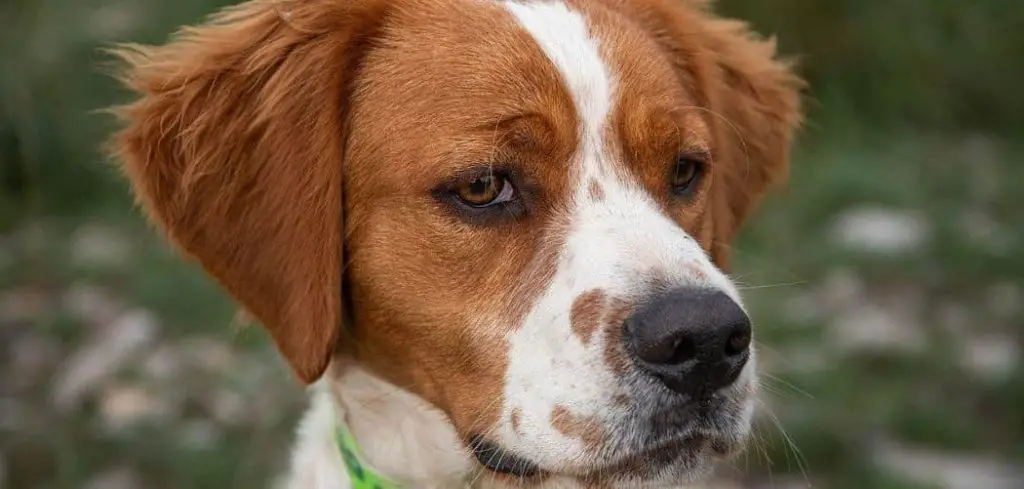Seeing your dog being sick and drooling can be distressing. These symptoms are often linked to digestive upset but can also signal something more serious like poisoning or organ problems.
Because drooling and vomiting combined often point to discomfort or illness, they should never be ignored.
We outline the common reasons why a dog being sick and drooling may happen, what you can do at home, and when to seek veterinary help.
Dog Being Sick and Drooling — Why It Happens
When a dog vomits and drools excessively, it’s usually because something is irritating their stomach, nervous system, or mouth. Dogs may drool as a response to nausea, dental pain, or toxin ingestion, and vomiting soon follows. Conditions such as gastrointestinal infections, pancreatitis, heatstroke, and poisoning are frequent culprits.
Sometimes, foreign bodies stuck in the mouth or throat can trigger both symptoms together. While mild causes exist, this combination often indicates that a vet check is necessary.

Dog Being Sick and Drooling: Common Causes
Gastrointestinal Upset
Dogs often vomit and drool when their stomach is irritated. Eating spoiled food, ingesting garbage, or eating too quickly can all cause nausea that leads to hypersalivation. You might see your dog pacing, licking their lips, or retching before being sick.
In most mild cases, this passes within a day, but persistent vomiting and drooling can point to more serious problems like gastritis or infections.
Read more: Dog Being Sick and Diarrhea (Why it happens)
Pancreatitis
Pancreatitis occurs when the pancreas becomes inflamed, usually triggered by eating fatty foods. This condition is extremely painful and can cause vomiting, drooling, abdominal pain, and lethargy.
Dogs with pancreatitis may hunch over or avoid lying on their stomachs due to discomfort. Left untreated, it can quickly worsen and become life-threatening.
Heatstroke
Heatstroke is a medical emergency where dogs overheat and cannot regulate their body temperature. Excessive drooling, vomiting, panting, and collapse are hallmark symptoms.
This condition develops rapidly, especially in hot weather or after vigorous exercise. Immediate cooling and veterinary care are crucial to prevent organ failure.
Toxin Ingestion
Dogs are curious and may ingest toxic substances such as chocolate, antifreeze, xylitol, or certain plants.
These poisons irritate the stomach, causing drooling and vomiting as the body attempts to rid itself of the toxin.
Depending on the substance, dogs may also display tremors, seizures, or abnormal heart rhythms. Rapid treatment makes the difference between recovery and fatality.
Dental or Oral Issues
Severe dental infections, abscesses, or foreign objects stuck in the mouth can cause excessive drooling. When combined with vomiting, it may indicate that the discomfort is making your dog nauseous.
Owners might notice pawing at the mouth, reluctance to eat, or foul breath. Dental problems can progress to systemic illness if untreated.
Liver or Kidney Disease
Both the liver and kidneys play major roles in filtering toxins from the body. When either organ system fails, toxins accumulate, causing nausea, vomiting, and drooling.
Chronic cases often progress slowly with subtle symptoms like weight loss, bad breath, and reduced appetite. Acute cases, however, may appear suddenly and severely.
What to Do If Your Dog Is Being Sick and Drooling
If your dog is sick and drooling, the first step is to monitor the frequency and severity of the symptoms. If it happens once and your dog quickly returns to normal, you may observe at home.
Withhold food for a few hours, then reintroduce bland meals like boiled chicken and rice in small amounts.
Keep your dog well-hydrated. Offer fresh water frequently, as vomiting and drooling can cause dehydration. You can also provide ice cubes to lick if they are reluctant to drink.
Create a calm environment. Stress can worsen nausea, so let your dog rest in a quiet, cool place. Avoid long walks or play until they are stable.
If you suspect toxin ingestion, heatstroke, or ongoing illness, skip home care and go straight to your vet. Prompt action can save lives in emergencies.
When to Call or Visit Your Vet
You should call or visit your vet immediately if your dog vomits multiple times within a short period or cannot keep water down. Persistent drooling with retching signals that something more serious may be happening internally.
Seek urgent veterinary care if your dog is weak, shaking, or has pale gums. These can indicate shock or organ involvement.
Blood in the vomit, extreme lethargy, or collapse should always be treated as an emergency. Similarly, if drooling and vomiting start suddenly after being outdoors or in contact with potential toxins, time is critical.
Trust your instincts. If your dog seems unlike themselves, professional evaluation is always the safest choice.
Read more: Dog Being Sick and Drinking Lots of Water (Why it happens)
Key Takeaway
When your dog is being sick and drooling, it may be due to something as simple as stomach upset or as serious as poisoning or organ failure.
While mild cases may resolve with rest and hydration, ongoing or severe symptoms need urgent veterinary attention.
Staying observant, acting quickly, and providing comfort at home can make a big difference in your dog’s recovery.
Most importantly, never hesitate to reach out to your vet if you are unsure — your dog’s health and comfort depend on it.
